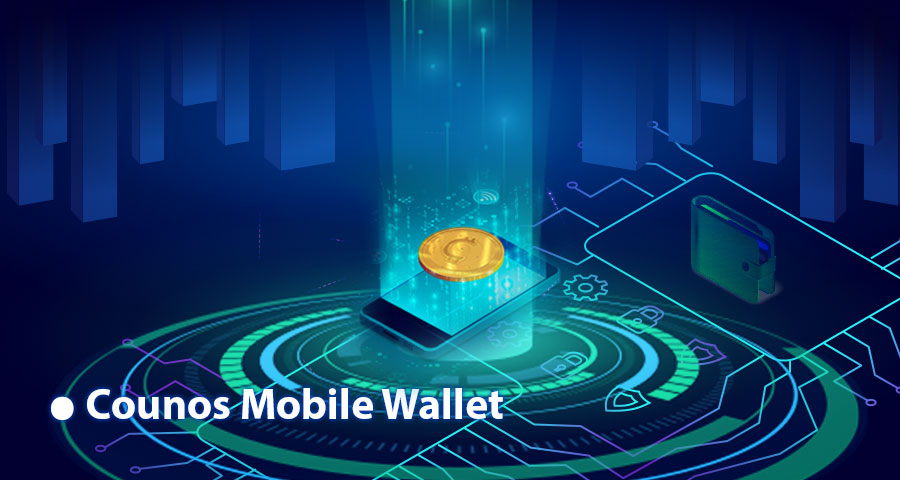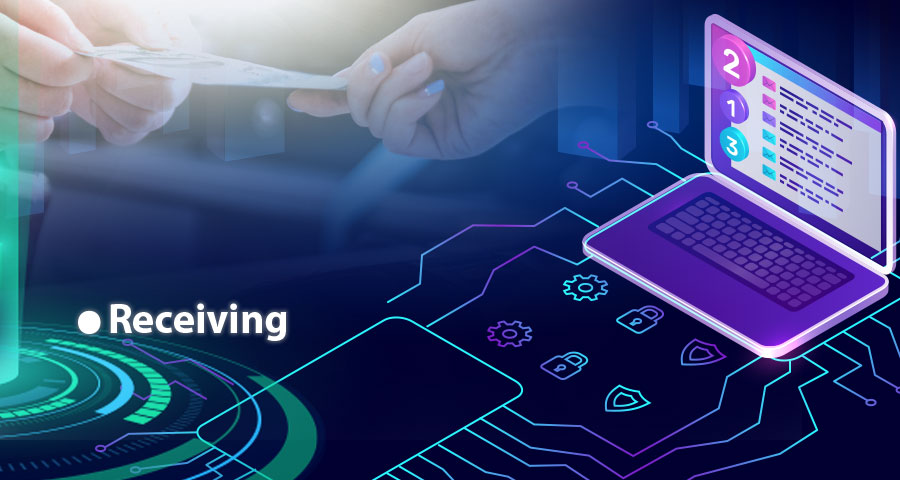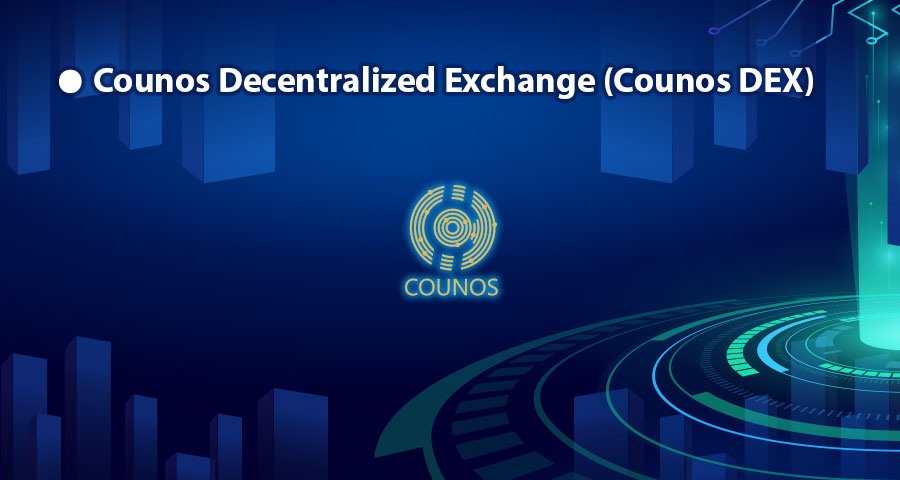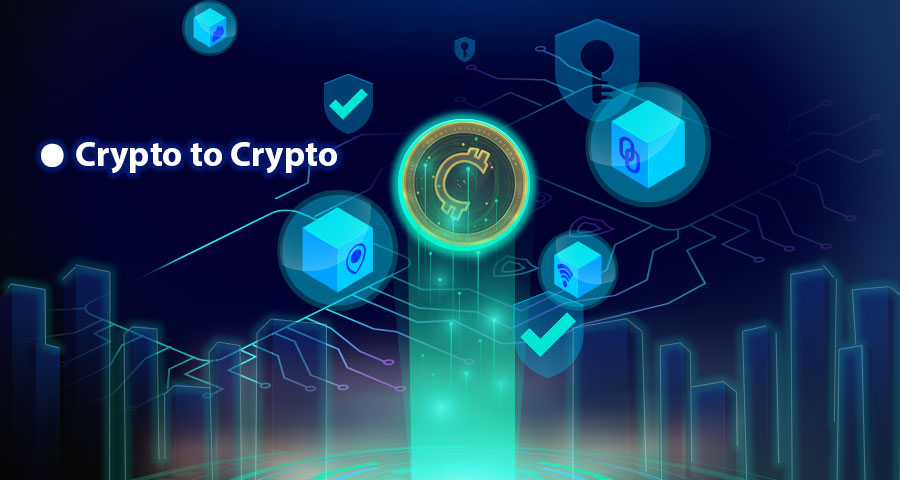Counos Platform is a Swiss-based company offering an extensive variety of services in the field of the Blockchain technology, cryptocurrencies, online financial services, payment gateways, and so much more. But among the top functions carried out by this platform are transactions. In this article we intend to talk about how Counos transactions take place across different services offered by this platform; namely Counos Mobile Wallet, Counos Escrow, and Counos DEX

1.Counos Mobile Wallet
Counos Mobile Wallet is a crypto wallet that in addition to high speed, security, and privacy, has many other amazing features for users so that they can make transactions with different cryptocurrencies and stablecoins easily and safely. Perhaps, among the most important of these features is the support of the most well-known and major cryptocurrencies, like Bitcoin, Ethereum, Tether, Counos Coin, Counos X, and so many other cryptocurrencies and stablecoins.
As with any other crypto wallet, there are two major types of transactions that take can take place; sending and receiving. Let’s start with sending.

1.1. Sending
In order to make a transaction in the form of sending cryptocurrency for someone using Counos crypto wallet, you first need to go to your portfolio, which is the main page of the wallet. In that section you can see all the cryptocurrencies and stablecoins in addition to your balance for each one of them. Suppose you want to send Counos Coin (CCA) for someone. In order to send crypto for anybody you will need their wallet address for that coin. So you can tap on Counos Coin in your portfolio and in the new page on the bottom right there is an icon for sending. Click on the send icon and in the new page you are required to add some information. This information includes the amount of coin you want to send and most importantly the wallet address of the receiver. So enter the amount of coin and the wallet address of the receiver.
Note: typing a wallet address is basically impossible. So for safety reasons, just copy and paste the address you have received from the other party.
Finally, click on send and that’s it. The transaction has been made and the cryptocurrency has been sent to the other party. As you can see it is incredibly easy to send crypto for someone using Counos Mobile Wallet. It’s so straightforward that it takes less than 30 seconds to send any amount of crypto.

1.2. Receiving
Now let’s see how you can receive a transaction using Counos Mobile Wallet. If you want to receive a transaction, there is not much you should do. You only need your wallet address or receiving address for any coin that you want to receive.
Your wallet address, otherwise known as the receiving address, can be used so that others can send you cryptocurrencies. For example, you can give your Counos Coin address to others so that they can send you Counos Coin (CCA).
But how can you find your wallet address?
First you need to open your Counos Mobile Wallet app. When you open the app, the first page you see is called the portfolio. This page contains all the cryptocurrencies and stablecoins.
You can find the receiving address of every coin in two ways;
First, tap on any coin you want, and in the new page tap on Receive, then you will be able to see your wallet address for that coin. For example, your Counos Coin Wallet Address. Then you can copy the address so that you may paste it afterwards wherever you want. Or you can have the other party scan the QR code that you can see in that page.
The second way to access the wallet address for any coin on Counos Mobile Wallet is to swipe left any coin that you want so that you would go to the Receive page of that coin (if you swipe right on any coin, you will be taken to the Send page of that coin). After you swiped right and were taken to the Receive page, you can copy the address or have the other party scan the QR code that can be seen in that page.
This is how you can access your wallet address (receiving address) in Counos Mobile Wallet and use it to receive cryptocurrencies.

2.Counos Escrow
Another form of Counos transactions take place in Counos Escrow. Counos Escrow is a financial cryptocurrency system wherein a trusted third party holds onto the payment of a transaction between two parties. Counos Escrow is a very useful Crypto escrow when a large amount of money is involved; for instance, when someone wants to sell his/her goods or services but is reluctant to deliver before making sure of payment being made, and on the other hand, when someone wants to buy goods or services and is also reluctant to make the payment before making sure of deliverance. Counos Escrow provides online payment services using cryptocurrencies including Bitcoin, Counos Coin, Counos X, etc.
With Counos Escrow, the transaction can safely be carried out without any risk of fraud. You can make safe and secure payments using your coins (cryptocurrencies) via Counos Escrow. While paying, Counos Escrow will not disburse any funds unless both buyer and seller are satisfied. All funds transacted using Counos Escrow are kept securely. All this process takes place with the help of escrow agents. Counos Escrow has individual agents in charge of overseeing the proper completion of a contract. These individual agents are made up of legal firms and lawyers.
To fully explain how a Counos transaction takes place in this escrow service, let’s use a contract example. Suppose you want to hire a website designer and you want you pay him with Counos Coin (CCA). You cannot find someone online and send them the Counos Coin without being assured that he is a good website designer and will deliver the task as required. On the other hand, the website designer in this example cannot trust you enough not to take any money and start the project. This is where Counos Escrow enters.
First, go to Counos Escrow to create a contract, a smart contract. Then choose a name for it and specify all the terms of the contact. Specify all the things you want the website designer to do. Also, you specify that you want to pay with Counos Coin; for example, you want to pay 50 CCA for this project. You can also create some installments called milestones. Then your contract is completed. You also will choose an escrow agent who will oversee the proper and legal completion of the contract.
After you approve the contract you have created, Counos Escrow will send an email to the other party. After the other party accepts the invitation and enters the smart contract on Counos Escrow. If he accepts then it is time for the contract agent to approve and then the contract will get started.
When the contract is approved by all the three parties, the buyer, the seller, and the escrow agent, then in this case the website designer who is the seller will start the project.
All the assets involved in any contract in Counos Escrow are kept in a wallet known as the multi signature wallet or the MultiSig wallet. The buyer, the seller, and the escrow agent all have a key to this wallet and no one person can access this wallet on his own. In order to withdraw from this wallet, the approval of two parties is required. This is how parties involved in any Counos Escrow transaction can be sure that they will receive the assets or services they should. For instance, in the case above, the buyer is sure that his project will be done properly, and the website designer can be sure that when project is done he will be fully paid. After the service or asset, in this case the project, is delivered the buyer will confirm and then the payment is fully made to the seller.

3.Counos Decentralized Exchange (Counos DEX)
Another form of Counos transactions that are very common are the transaction of Counos Decentralized Exchange or Counos DEX. Counos Decentralized Exchange is a peer to peer and community-based decentralized exchange that allows its users to exchange cryptocurrencies in a safe and secure environment with no risk of fraud. Using the services offered by Counos DEX, users can exchange their digital assets (cryptocurrencies) to other cryptocurrencies or even to fiat money.
There are two major types of exchanges that take place in Counos DEX: crypto to fiat money or fiat money to crypto, and also crypto to crypto.

3.1.Crypto to Fiat Money and Vice Versa
If you want to sell cryptocurrencies and get fiat money in Counos DEX, you should look for the right market, comprised of your cryptocurrency and the fiat money you want to receive. After the system gives you the best markets suited for your need and after you submit the request, the exchange will ask you, the seller, to send the cryptocurrency to the MultiSig wallet, but this does not mean that the cryptocurrency will be sent for the buyer, because two private keys are needed to access the assets in a MultiSig wallet.
You can also choose an escrow agent for your exchanges on Counos DEX, so that if any disputes are risen between the two parties, the agent can solve the issue and prevent any loss to either parties. Each agent has its own amount of commission, and people can choose between them.
The escrow agent chosen for any smart contract has one of the three private keys to the MultiSig wallet, and thus ensures that the assets in the MultiSig wallet cannot be accessed unless both parties to the contract, the buyer and the seller, are happy with the result of the contract.
After the seller transferred the cryptocurrency to the MultiSig wallet, then the buyer does the same on his part and sends the asset to the MultiSig wallet and then the buyer will upload the scanned receipt of the transfer. Parties have 72 hours to transfer the money and upload the receipt to be approved.
This is basically how an exchange of crypto to fiat money or vice versa takes place. It should be mentioned that while the cryptocurrencies are kept in the MultiSig wallet, traders can use their personal accounts to withdraw their fiat money from Counos DEX.

4.Crypto to Crypto
Another type of Counos transactions that usually take place in Counos DEX is the exchange between cryptocurrency and cryptocurrency.
To exchange crypto with crypto, users do not need KYC verification. In this type of trade, the parties to the contract have 10 hours to transfer the cryptocurrency to the MultiSig wallet, and after the agent approves then trade will take place quickly and easily.
This is one of the most straightforward type of exchanges. Users transfer their crypto to a MultiSig wallet, then after both sides confirm, the assets are released respectively to their rightful owner.

Conclusion
Counos transactions, which are the transactions that take place across the services and systems offered by the Counos Platform, facilitate the management of online assets, financial transfers, and in general finance management.